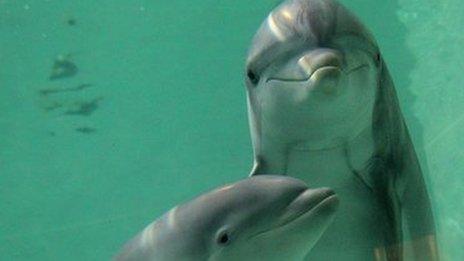Dolphin 'reality show' filming suspended in Portugal
- Published
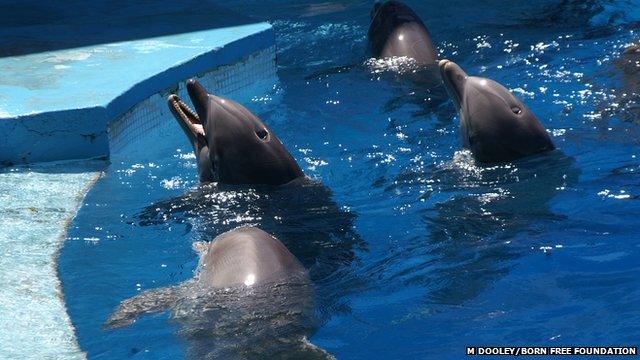
Campaigners say there are more than 300 whales and dolphins in European zoos and theme parks
Animal protection groups say they have successfully suspended the recording of a TV series called "Dolphins with the Stars" in Portugal.
According to the Born Free Foundation, the show involves celebrities training captive dolphins to perform routines and tricks for live audiences.
Campaigners argued that the show was exploitative, and also contravened zoo regulations.
The broadcaster and the zoo said it had educational and scientific value.
A slick trailer for the series states that ten celebrities each "team up" with a dolphin and the teams "live together" for a month. Trainers and choreographers work with each pair to create a show that is eventually judged by a live audience.
"Dolphins with the Stars" has already been broadcast in Lithuania and it is thought that the rights have been bought in Spain and Italy and optioned across Europe.
The Portuguese version was being filmed at Zoomarine in Guia, in the Algarve, and was due to be broadcast on 20th June by SIC, a national television network.
Exploitative or informative?
Daniel Turner, spokesperson for the Born Free Foundation (BFF) said: "We are delighted to hear the news. We weren't able to stop it in Lithuania, but the Portuguese were much more receptive. They have very good legislation for zoos that prevents the over-exploitation of animals."
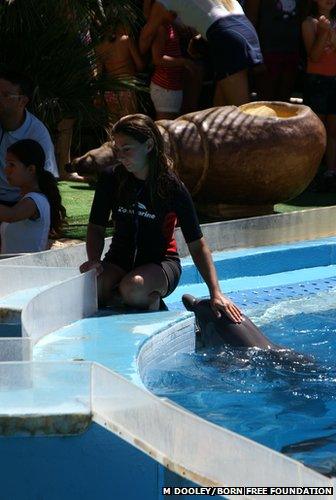
Campaigners said Portugal has 'very good' animal regulations
The BFF and the Dolphinaria-Free Europe Coalition, which is made up of 19 NGOs from 11 countries, sent letters to the Portuguese government claiming: "The exploitative practices of the TV show contradicted the zoo's legal requirements that dictate a commitment to species conservation, meaningful public education and species-specific animal welfare. It was clear that the use of Zoomarine's bottlenose dolphins would be in breach of those requirements."
The filming of the show was underway, although it is thought that the celebrities had not yet been introduced to the dolphins.
Announcing the official suspension of the programme, SIC and Zoomarine said they had done so on the advice of government regulatory bodies - the Institute for Nature Conservation and Forests (ICNF) and the National Authority for Animal Health (DGAV).
Expressing disappointment with the decision, a press release stated that they had gone to great lengths to strengthen the educational and scientific elements of the show. The aim had been to "increase understanding of this magnificent marine species" and thus promote marine conservation. Ensuring the health of the dolphins had been of paramount importance.
According to campaigners, more than 300 whales and dolphins are kept in zoos and theme parks in 15 European countries.
For a long time there has been a debate about the ethics and effect of confinement on cetaceans - the family of aquatic mammals that includes whales, dolphins and porpoises - especially as more is discovered about their intellectual and cognitive abilities. They are seen as among the more intelligent species on earth. They have complex social networks, recognise themselves in mirrors and have been shown to keep track of more than 100 words.
Mr Turner said: "Whales and dolphins are hugely intelligent and social species, which when deprived of space and environmental complexity, develop abnormal behaviours such as stereotypic behaviour (repetitive behaviour without any reason), heightened aggression and in some cases, early mortality."
The 2013 documentary Blackfish explored the impact on orcas of living in tanks at SeaWorld. The resort saw a steep decline in visitor numbers after it was broadcast.
However, SeaWorld and similar theme parks strongly refute any claims that their conditions inflict harm on their captive aquatic animals. They maintain that such positions are not scientific, but are the views of animal rights activists - and that tanks are specially designed to mimic the animals' watery world as accurately as possible.
The majority of dolphins are captive born. European law prevents the capture of wild cetaceans from EU waters for commercial purposes - for example, their use in dolphinaria. But according to the Born Free Foundation there are "few restrictions to importing wild-caught animals from outside the EU".
- Published9 March 2015
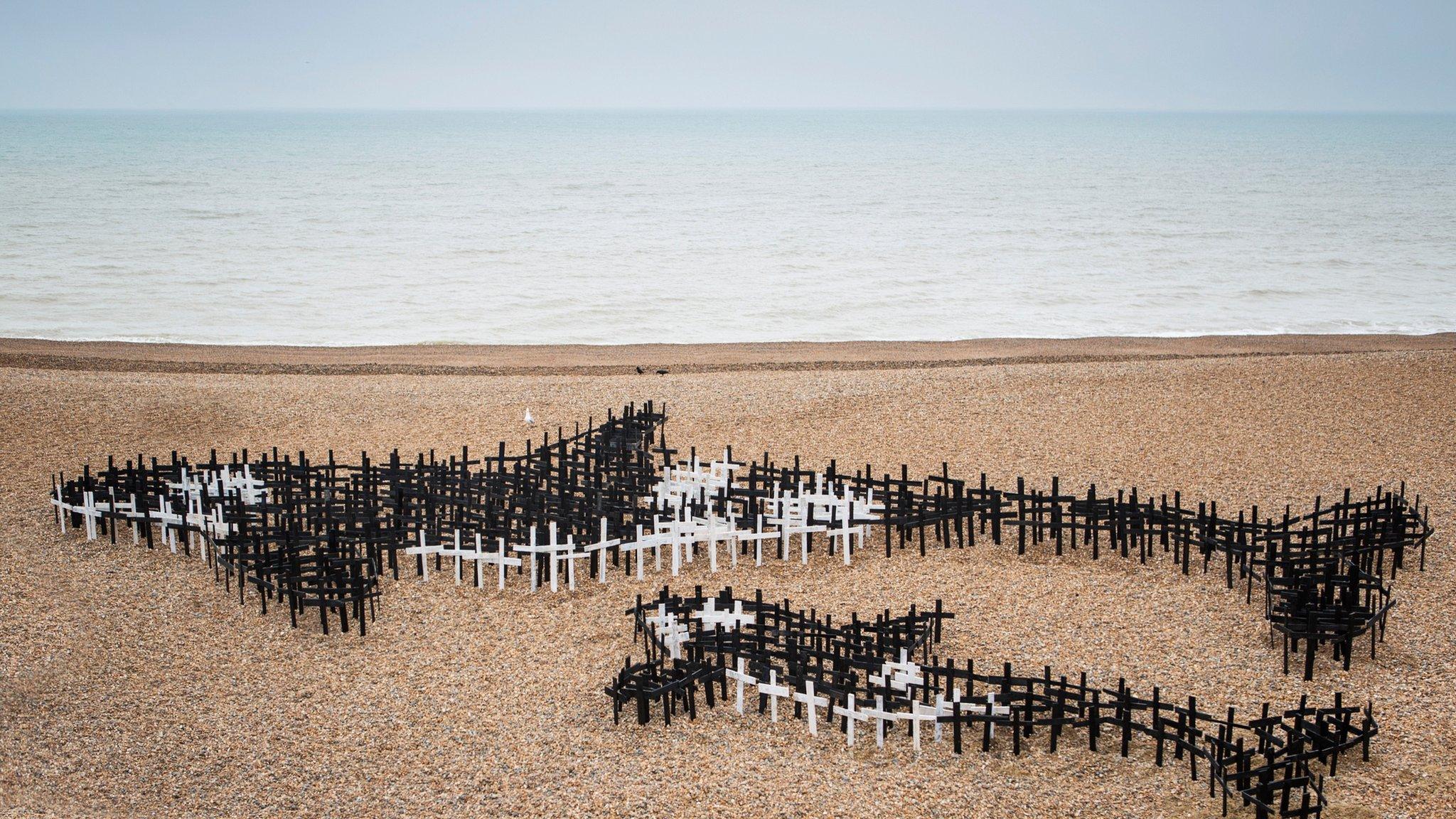
- Published20 February 2015
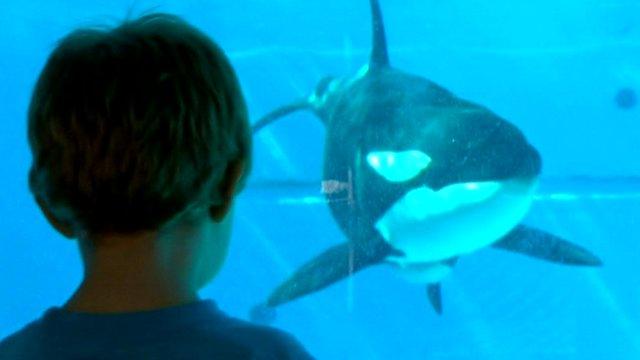
- Published7 August 2013
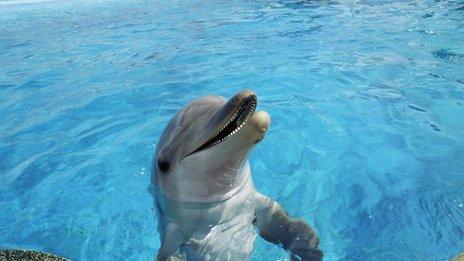
- Published21 February 2012
